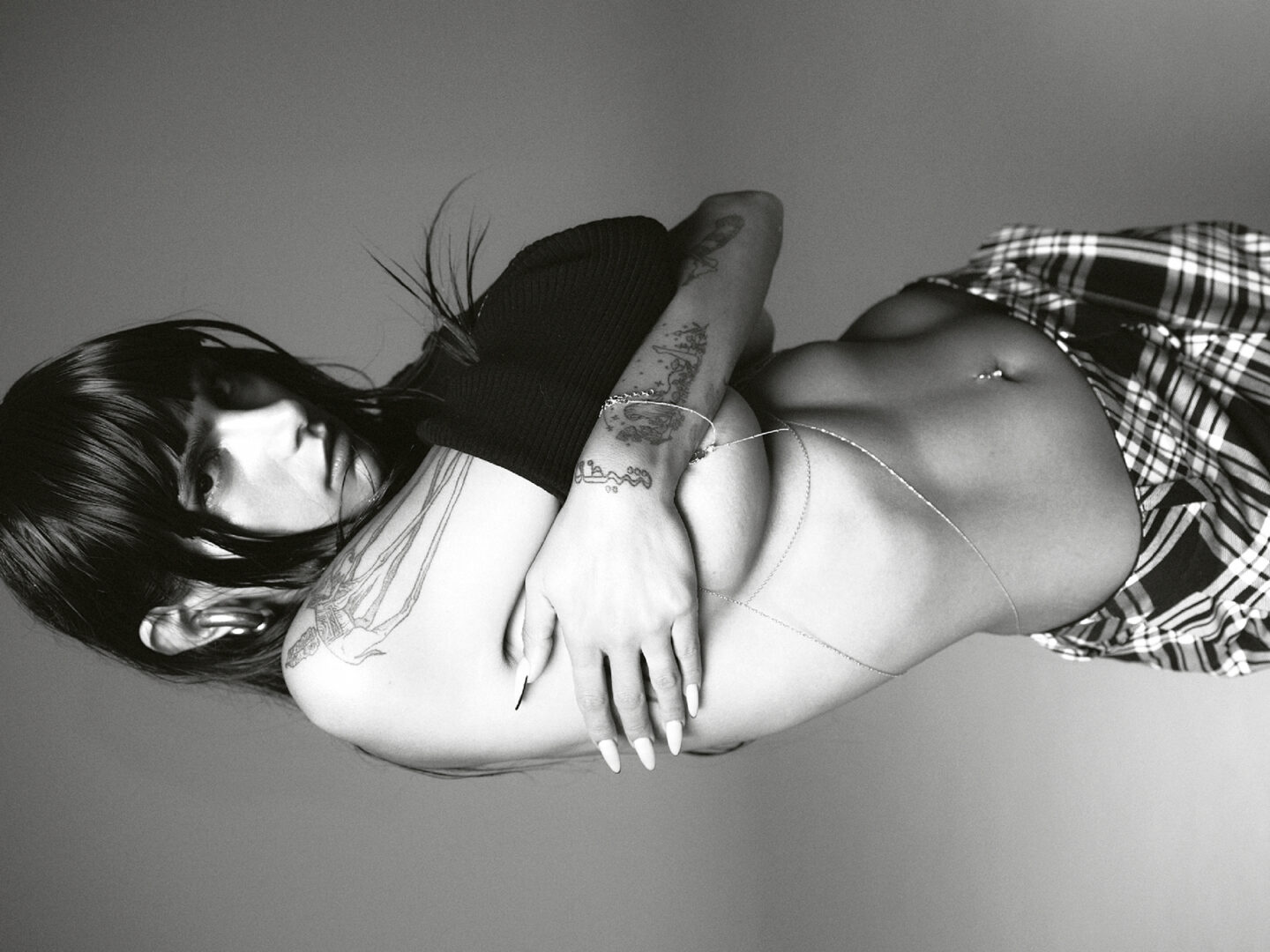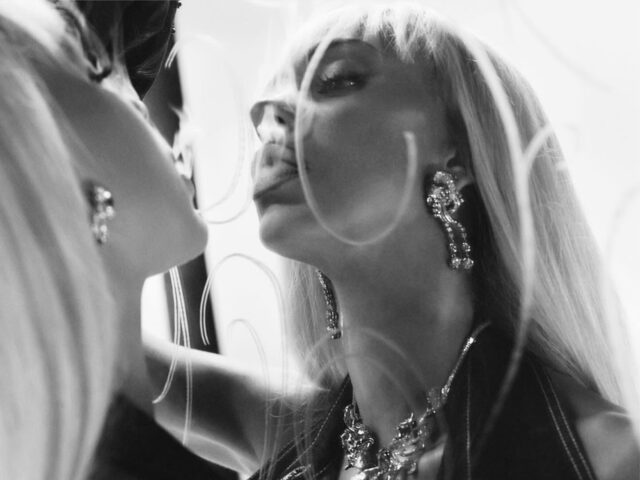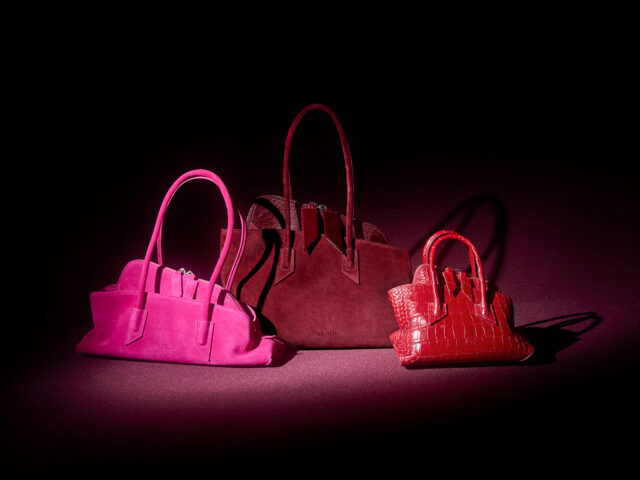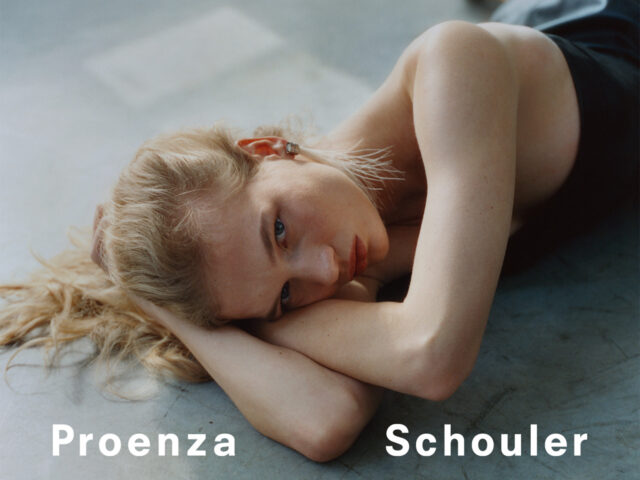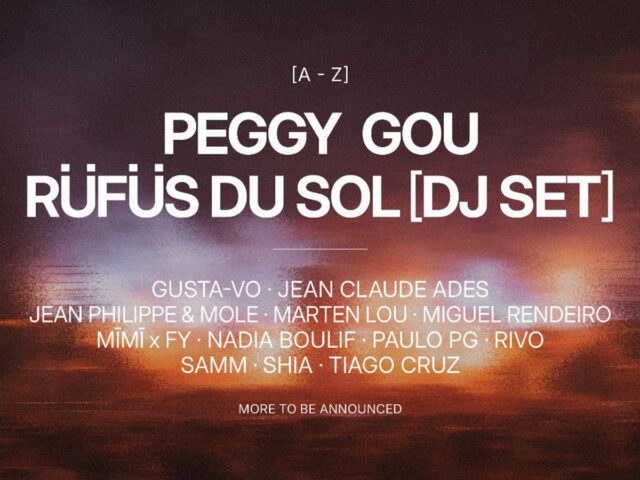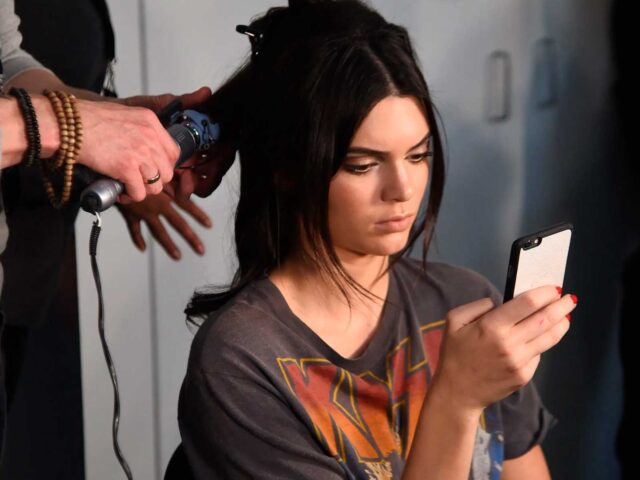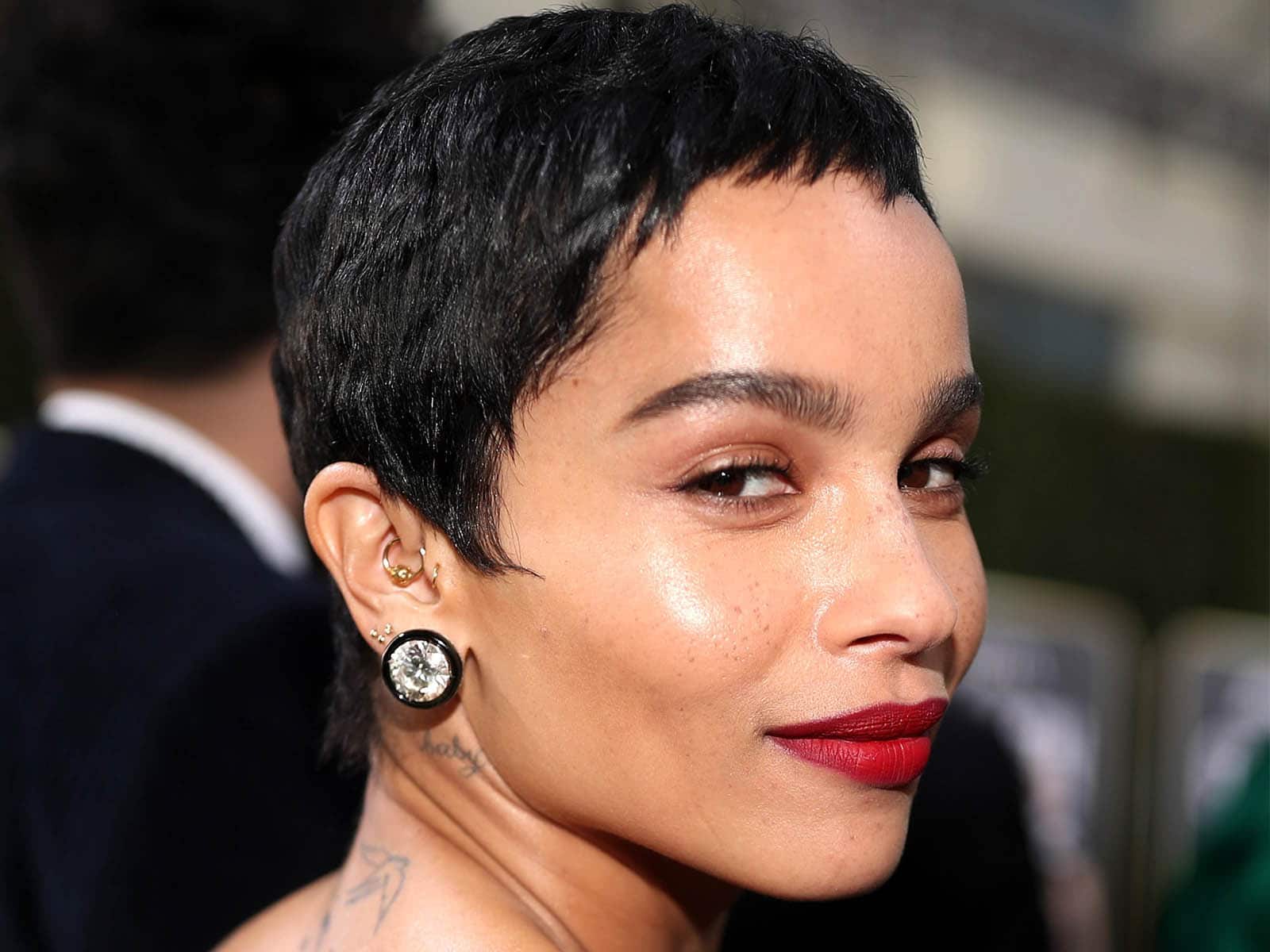This Lebanese-born celebrity knows what it’s like to wear a scarlet letter: her past in the porn industry still follows her a decade later. But she doesn’t stay silent; she has the courage to take a stand in politics and speak uncomfortable truths freely. This is her battle today—against ignorance and fear.
Mia Khalifa welcomes me in her hotel room in Madrid. Sitting cross-legged on the bed, she looks like a college student with shorts and a sleeveless Karol G t-shirt, her hair loose and her face makeup-free. At 31, she looks a bit younger. She’s petite, speaks quickly, gestures a lot, and comes across as smart. She flew in that same night from Miami and, after a quick nap, tells me about her arrival in Spain: “The driver asked me if I was famous. When I asked why, he said it was because of how I dressed and my suitcase,” she recalls with amusement. “But the best part came later. I took off my sweatshirt, and when he saw my t- shirt, he asked, “Are you Karol G?” She recalls, “Me, the Bichota?” she says, her distinctly Colombian accent evident, followed by another burst of laughter.
Sarah, her real name, was born in Lebanon on February 10, 1993, into a Christian family that emigrated to the United States when she was eight years old. Although she grew up in Washington, she admits that her knowledge of Spanish comes from her time as a university student in El Paso, Texas — “You know… pinche, pendeja,” she jokes about the first words she learned. She also speaks some French and, of course, Arabic. And even if the taxi driver didn’t quite place her, her fame has followed her, much to her dismay, for a decade.
In 2014, her participation in a series of adult films turned her almost overnight into the most-searched star on the Pornhub platform. Beyond that, the fact that she wore an Islamic hijab (the scarf used by some Muslim women to cover their heads) in one of those films caused a huge controversy and led to her receiving death threats from ISIS sympathizers.
Mia doesn’t shy away from talking about it; quite the opposite. Since managing to distance herself from it, instead of hiding and trying to regain her anonymity, she has used her platform to highlight issues such as prejudices against female bodies and to shed light on an industry that sometimes exploits the vulnerability of young women who aren’t aware of the industry’s falsehoods. That was her case. Surprisingly, she only worked in it for a few months. And she didn’t even become rich from it. “Porn is like a scarlet letter. It’s something that, especially for women, follows you your entire life. No one will ever see you differently again. And it’s the only thing people will recognize you for, ensuring you stay small and confined in that box that makes them feel comfortable,” she says.
But Mia is much more than a woman committed to political or social causes. She’s also an entrepreneur. She’s founded a body jewelry brand, Sheytan — the word means exactly what it sounds like: devil. She has her own space on the adult web platform OnlyFans — “Don’t expect to see anything you can’t already see on these pages,” she warns. And, above all, she’s become a global influencer, with a staggering 70 million followers across Instagram, TikTok, and X.
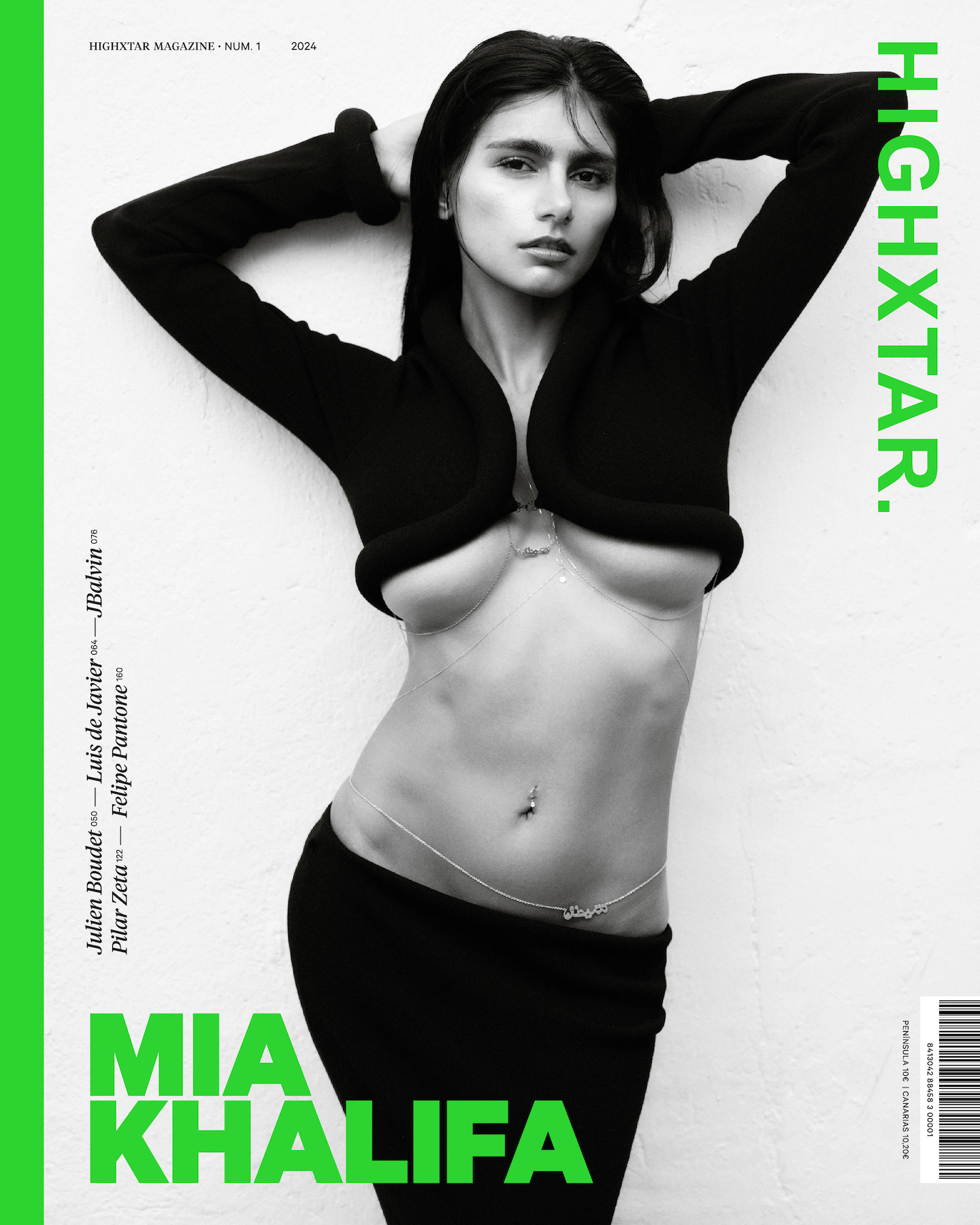
HIGHXTAR (H) – Let’s start from the beginning: Have you managed to shake off the pressure and labels of your past?
MIA KHALIFA (M) – I hope so; it’s what I’ve been working on for the past few years. My time in the porn industry is not something I would have done had I been more aware in my early twenties, and it’s not something I’d encourage anyone to do, regardless of their situation. It’s taken me a lot of hard work to distance myself from it, and I’m still doing so, and it’s not easy. To this day, many doors are slammed in my face, and it’s very clear why. It’s frustrating and discouraging. But at the same time, it’s motivating because, despite all the doors closing, I’m still here. So perseverance is worth it.
(H) – What have you learned during this time?
(M) – That you can’t take things personally. If people want to see you a certain way, you’re not going to change their minds. And that really happens because they are projecting their insecurities and shame onto you and want you to embody that shame. If they said, ‘Oh, you’re right, you were 20 or 21, you made a mistake, and you were exploited…’ If they admitted that, they’d have to acknowledge that any video they’ve watched or any porn site they’ve visited may also involve exploitation, and they’re contributing to that. We live in a culture of fear and shame.
(H) – On your X account, you’ve highlighted a phrase: ‘There comes a time in life when you realize EVERYTHING is political.’ Can we talk about that?
(M) – Do you want a headline? Fuck Trump! [Laughs] Seriously, screw him. That’s what I think; but I also have an internal conflict, because I don’t support Kamala Harris either. I think she’s complicit in genocide.”
(H) – This topic is personal for you: you were born in Lebanon.
(M) – Look, politicians aren’t gods. They’re not celebrities. They’re nobody. They’re just public figures who represent us and whom we must hold accountable. That’s why I won’t vote for anyone who authorizes bombings that kill my people.
(H) – Do you still have family there?
(M) – Yes, friends and relatives. There are many people there who are trapped. Fortunately, my family is outside of Beirut, in safer areas near the Syrian border. They’re in a situation where they don’t leave their homes but can host people who’ve left theirs. Right now, a friend of mine has 28 displaced people in his three-bedroom house. They’re refugees, people who’ve been forced out of their homes, sleeping on his floor, in his kitchen, and on his balcony, so they don’t have to live in their cars while waiting to cross the border.
(H) – But you have a powerful voice: you have 26 million followers on Instagram, 38 on TikTok, and over 6 on X. How do you manage such an audience?
(M) – I think the only thing I’ve learned about saying things that provoke a negative reaction on social media is that I need to be careful with what I say because I don’t want to be a distraction that makes people end up talking about me. And when I say I need to be careful, I mean ensuring that the focus remains on the issue and keeping it there, making sure my emotions don’t get in the way of delivering a message.
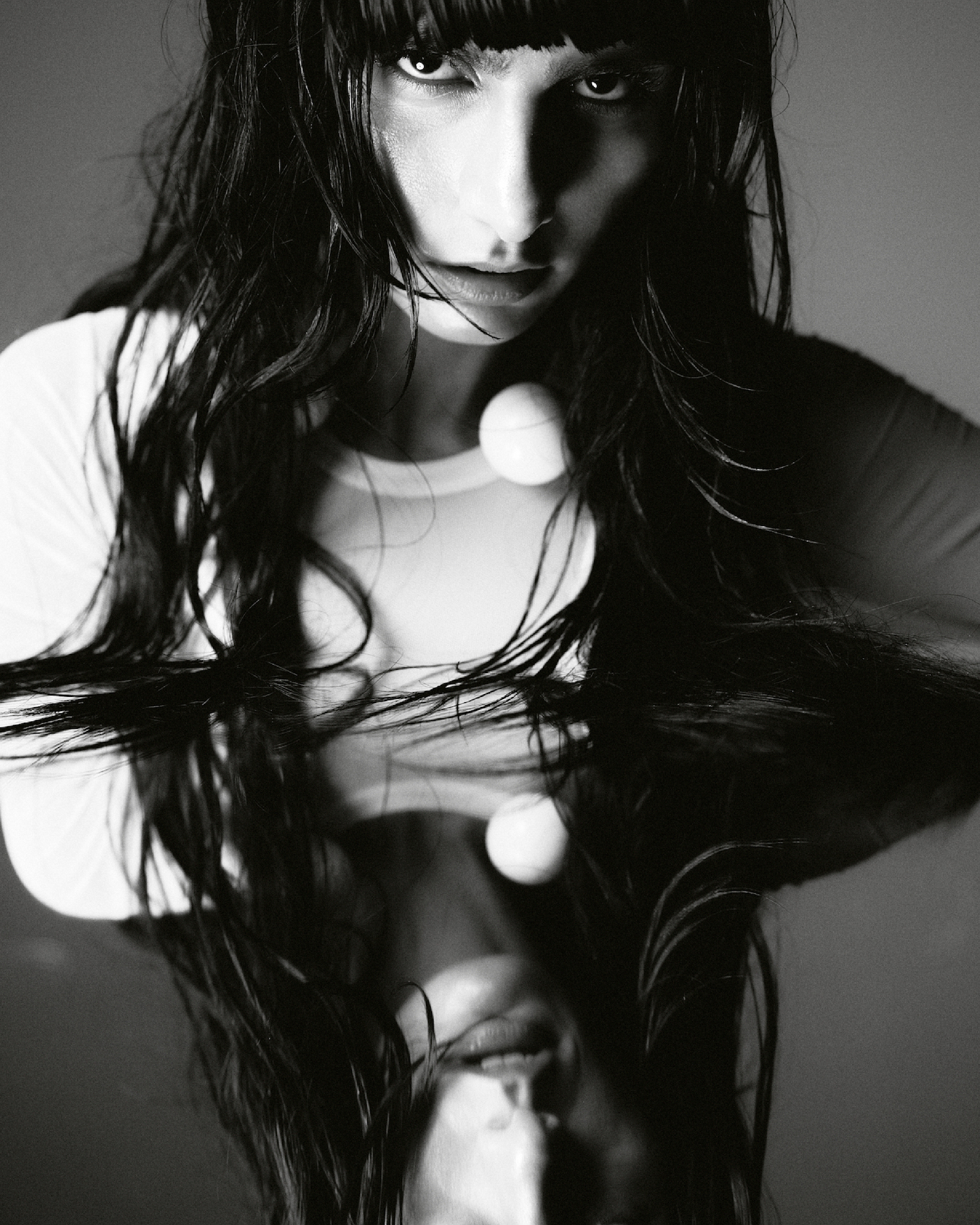
(H) – What is the message?
(M) – The message is that we…—well, not Spain. Spain is doing well. The message is that we live under governments complicit in genocide. That’s why I admire Spain and Colombia so much; they have the respect of the United Nations. The important thing is that many countries, like yours, impose embargoes and stop sending weapons that kill innocent civilians. It’s not that they’re asking for an immediate two-state solution in a war. They’re asking for a ceasefire to negotiate. But when you see that this is ignored, rejected, and overlooked, it’s clear they have no interest in peace.
(H) – What do they have an interest in, according to you?
(M) – In colonization. That’s their only interest. One day, Netanyahu will stand at the UN, hold up a map, and say, ‘This is how the world will be.’ And it will show Syria, Jordan, and Palestine erased from the map. Everything will be the same color and called Israel. Tell me, what do you call that? How can you understand that without seeing Hitler holding a map and saying, ‘Poland is going to be Germany.’ There is no difference!
You want a headline: Fuck Trump! [laughs] Seriously, fuck him.
(H) – Your ideas are very clear.
(M) – I don’t know who said that if you don’t know your history, you are doomed to repeat it. I think there is very little media literacy. That’s the only way to understand why people cannot differentiate between what is clearly propaganda and what is genuinely informative. That’s the crux of it all.
(H) – Is that why you studied History?
(M) – Yes, American History. I specialized in World War II. I loved studying it. I was fascinated, primarily, by how the world could have allowed things to reach that point. And when I was in college, I thought: “Oh my God, this would never happen today.” But it turns out that we still see dozens of children dismembered daily on our timelines, whether we want to or not. And lately, I’ve been thinking a lot about war and peace. But no matter what we see, no matter what we say, no matter how much we protest, the people in power will do whatever benefits them the most. And whether we like it or not, war is what benefits them because it brings money. Weapons production, military enlistment—this is what sustains America. That’s why public schools there want kids to be uneducated, so that when they grow up, they can be easily manipulated.
(H) – Do you feel in danger for expressing your views?
(M) – I feel more in danger going to the hair salon in Miami Beach than anywhere else. Miami is extremely Zionist, and I’ve been physically attacked and harassed there… even at my home.
(H) – Because of your political stance?
(M) – Because they know who I am, they know my opinions, and they know I’m outspoken. A woman verbally assaulted me when I was leaving the Miami Convention Center during a jewelry fair. Other people showed up in front of my house, waiting for my Uber Eats delivery or something, just to take a picture and say: “The terrorist Mia Khalifa has shown her face.” After that, I had to leave my home for a month because people discovered my address. I had to crawl out of my backyard, jump a fence, go through my neighbor’s yard, and escape to an Airbnb. I felt like Liam Neeson! Or I’ve had to tint my car windows beyond what’s legal because, one day, when I was stopped at a red light, two people started banging on my window, calling me an Arab whore and spitting on my car.
(H) – How did your Arab appearance affect you during your teenage years?
(M) – At that time, I had a lot of the same insecurities that many kids in America have, which is feeling like you don’t fit in at all. And it’s not because you’re overweight or not pretty or don’t feel pretty; it’s because the people there make you feel like you’re different.
(H) – On your Instagram account, you say: “Mia Khalifa, immigrant.” Do you still feel that way?
(M) – Completely. I’ve lived in the United States since I was eight years old, but I still feel like an immigrant. There isn’t a single person in the U.S. who looks at me and thinks: “Oh, you’re one of us.” Even though I’ve grown and gone to therapy, and I have found a sense of belonging, it’s not with America, but with people who think like me, others who also feel like they don’t belong anywhere. It’s a feeling that’s still in me. On the other hand, though, I’m proud of it and happy to have that outsider mentality.
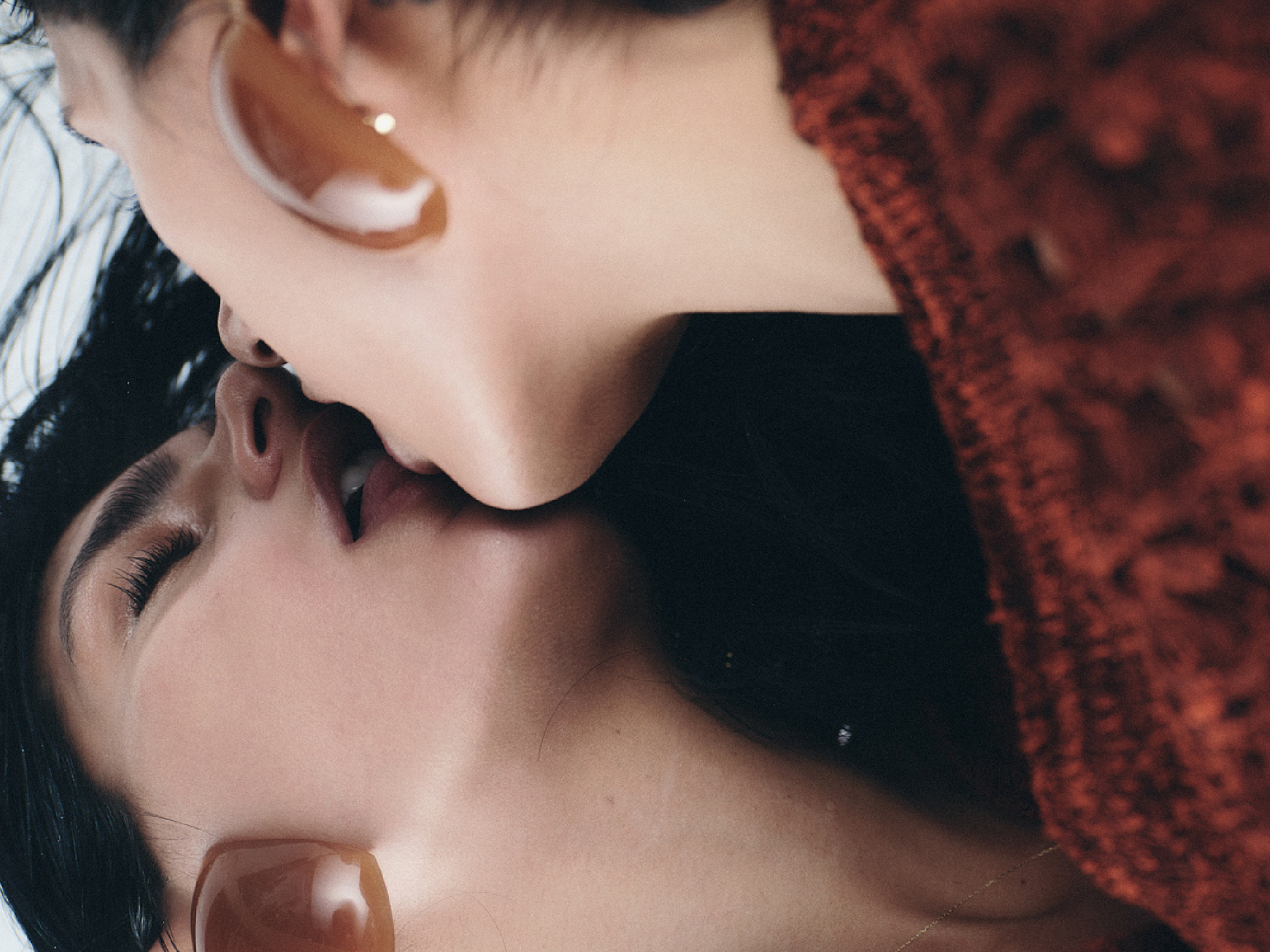
THE DEVIL COMES TO SEE YOU
Mia is an extremely feminine woman. Throughout the conversation, she demonstrates a quick wit and natural intelligence that is captivating. She also has a sense of humor. She talks about Georgina Rodríguez’s reality show, calling it “a fantasy.” She mentions that she has just set up a production company with Sara Burn, who has accompanied her to Madrid. This British woman, with extensive experience in fashion, is her representative and friend, as well as her business partner in her jewelry brand, Sheytan.
(H) – ‘Sheytan’ means… devil. Another statement of intent?
(M) – Completely. It’s a stigmatized word: any conservative man who sees a young woman dressed, even like I am today, showing just my shoulders or legs, will think: she’s a sheytan. Or if there are little kids running around and causing trouble, you yell at them to stop and call them little sheytans. And if a girl is promiscuous and wants to date, she’s also a sheytan.
I studied history because I wanted to work in a museum, but in the basement, with no one else around me.
(H) – And why make jewelry?
(M) – I love it, especially gold. It has always been very important to me. Body jewelry, bracelets, anklets… all of that is tied to my heritage and culture. As a child, I remember admiring my mother’s jewelry, which, while not extraordinary, was still fascinating. It’s something people keep; they survive wars and emigration.
When Sara and I started working together, our initial idea was to create a clothing brand, something for loungewear or lingerie. But one day, Sara asked me, “But what do you really care about?” And I said, “Jewelry, but I don’t know anything about it…” I think I simply had imposter syndrome. But how do we make jewelry? She said, let’s visit factories, research diamonds. We can do it. That’s how SheytanWorld was born, our platform: jewelry is a way of adorning oneself and a form of expression for Arab women. But I’m not just an Arab woman; I’m a girl with different interests, and I’d be thrilled to create a universe around jewelry. For instance, bikinis you can wear under and over clothes, or on their own. Or, for me, since I love smoking, why not make rolling papers? We want to create beautiful golden roach holders so you don’t ruin your nails when you’re smoking. That’s the world we want to build around Sheytan.
(H) – And how’s the business going?
(M) – It’s going very well. Really well.
(H) – Have you become rich?
(M) – Rich? Of course, I’m rich. (Laughter) Look, I have a beautiful and incredible friend to whom I can tell anything! No, seriously, people think that if you’re famous, you’re rich. But let me tell you, every time you search someone’s net worth on Google, it’s not at all real. This company is 100% funded by me. There are no investors. It’s just Sara and me. Everything is self- financed, and it’s been a bit challenging being a celebrity with a brand because when we go to do things like influencer marketing or a photo shoot, people want to charge six figures just because they think this company is backed and financed.
I also have to pay rent, and although I don’t have to live off ramen noodles, I want to invest everything I have into this and make the dream work. Maybe people see me at fashion weeks and don’t understand that, at best, it doesn’t make me money; usually, it costs me money. I can understand where the idea that I’m super wealthy comes from. But no, I’m just a regular person making a living and funding a business that I hope one day will make me feel comfortable enough to have kids and pay for a nanny or private school without having to think about it.
(H) – Today, a large part of your income comes from OnlyFans. Let me get ahead of those who don’t understand why, wanting to leave your past in porn behind, you now present yourself on the platform as a sexy woman…
(M) – It’s because I am a sexy woman! People feel uncomfortable with a woman’s sexualization—if it’s on her terms, it bothers them. I think there’s something predatory about that. If I’m in a bikini and my breasts look good, I take a photo because I’m a young woman and I feel sexy, like any other young person who has the right to do what she wants with her body. So, in my opinion, it’s the other person who has a problem when they say: “You don’t want to be sexualized, but you’re posing in a bikini.”
(H) – It goes back to the culture of fear and shame.
(M) – Yes. That’s why I’ll stay on OnlyFans doing what I’m comfortable with, not what makes you comfortable seeing me do. I have a very unconventional platform on OnlyFans where, um, I don’t actually show anything more than you’d see in a fashion magazine. But my OnlyFans isn’t just a place to see me in a sheer top; it’s also a space for people to see a different side of me, like me cooking or doing things I wouldn’t necessarily post on other social media.
It’s also an adult platform, so you’re not going to offend anyone. But there’s nothing I do there that I’m ashamed of. That’s what makes me feel comfortable on the platform—because it’s under my control, and I do it as much as I’m comfortable with. So when people say things like: “You don’t want to be sexualized, but you’re on OnlyFans…” it makes me want to say: don’t you understand the concept of consent? If you see a 20-year-old girl who doesn’t know what she’s doing and is in extremely stressful mental circumstances when she makes that decision… you just don’t get it. I am now an adult woman who feels beautiful, empowered, and sexy. So if you have an issue with that, I hope you one day have a daughter who goes through the same thing you’re criticizing in another woman.
(H) – What was your dream when you were a child?
(M) – I always imagined myself working, but not just any job. I actually studied History because I wanted to work in a museum, but in the basement, with no one else around. That was my dream. As a child, every time I had the opportunity to beg my family to take me somewhere, I would ask to go to one of the Smithsonian museums in Washington DC. I looked at the people who worked there, and for me, it was like, “Oh my God, how lucky they are.”
(H) – And now, what do you want to be when you grow up?
(M) – I want to be a good mom and a good friend to everyone around me. I want to be a good person, and I want to keep living with integrity. That’s all I want to be. That’s the most important thing to me: holding onto my values and not giving them up. I know that everything else will fall into place if I do that.
FIND OUT MORE AT HIGHXTAR. #1!
CREDITS
Talent @miakhalifa /// Photographer @javier_biosca /// Creative direction @gothic__sport /// Stylist @lauravandall /// MUAH @fidelmakeup @anotherartistsagency /// Nails @nailsbydanitung /// Set design @irenelunaz /// Photo assistant @pike_bishop /// Stylist assistant @bluetoothgirl @guilleqiller /// Video @reallysorry.cs /// DOP @jorgerpreciado /// Colorist @blanca.monagas /// Production @odysseyfam /// Ex. producer @maria.rodicio /// Production Assistant @lararodicio /// Runner @sergioerrece /// Interview @pleyra @palommc /// Talent team @saraburnstudio /// Special thanks to @navelamosca /// Looks @jeanpaulgaultier @soniacarrascoofficial @ysl @acnestudios @sheytan.world @miumiu @alejandrestudio @loewe @lorette.coleduprat @la_manso @suotstudio @arketofficial
Sigue toda la información de HIGHXTAR desde Facebook, Twitter o Instagram
You may also like...
